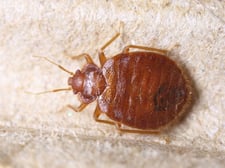A Malfunction of the Various Sorts Of Bug Control Solutions
In the realm of insect control, a multitude of approaches exist to fight the visibility and deal with of undesirable creatures. From the traditional use chemical pesticides to extra ingenious organic control services, each strategy provides distinctive advantages and constraints. As we navigate via the diverse landscape of bug control solutions, comprehending the intricacies of each technique comes to be critical in establishing the most efficient training course of action. Remain tuned as we discover the nuanced world of parasite control methods and uncover how each type plays an one-of-a-kind role in securing our settings.
Chemical Pesticides
Chemical pesticides are frequently made use of in parasite control to effectively get rid of a large variety of insects and various other pests. These chemicals work by targeting the anxious system of the parasites, interrupting their normal functions, and eventually bring about their death. The usage of chemical pesticides has actually been a staple in the parasite control sector for years as a result of their performance and fast results.

However, it is necessary to utilize chemical pesticides with care due to their prospective harmful results on the environment and non-target varieties. Improper application or overuse of these pesticides can bring about pollution, damage to beneficial bugs, and resistance growth in pest populaces. It is important to adhere to security standards and regulations when utilizing chemical pesticides for bug control.
Biological Control Approaches
Thinking about the prospective ecological influences and threats linked with chemical pesticides, organic control techniques provide a more sustainable approach to taking care of parasite populaces. Biological control involves making use of all-natural adversaries, such as microorganisms, predators, and bloodsuckers, to subdue bug populations. This method is often extra targeted, impacting only the details parasite types while minimizing injury to valuable bugs, humans, and the setting.

When established, natural enemies can help control pest populations continually without the demand for duplicated applications of chemicals. In addition, biological control is usually extra cost-efficient and can aid minimize pesticide resistance in insect populations over time.

Mechanical Bug Control
Mechanical insect control entails the physical control or removal of bugs to manage their populaces efficiently. This approach is typically utilized together with various other pest control approaches for extensive parasite administration. One usual example of mechanical parasite control is using catches to capture bugs or rats. These traps can be established up in strategic places where parasites are understood to dwell, aiding to reduce their numbers.
One more mechanical strategy is making use of obstacles such as screens, nets, or fences to block bugs from getting in specific areas. By physically avoiding bugs from accessing an area, the likelihood of infestations or damage can be dramatically reduced. Additionally, manual methods like handpicking insects off structures or plants can be efficient for smaller-scale invasions.
While mechanical bug control techniques can be labor-intensive, they use a non-chemical option look at more info that can be eco-friendly and sustainable. By targeting parasites straight, mechanical control strategies can aid maintain bug populations in check without relying upon pesticides.
Natural Treatments
Using natural remedies for pest control offers a lasting and green strategy to taking care of pest populaces without considering chemical treatments. Natural solutions entail using compounds stemmed from plants, minerals, or various other naturally occurring sources to deter or get rid of bugs. As an example, planting certain natural herbs like basil, mint, or lavender around your building can drive away bugs due to their solid fragrances. Diatomaceous earth, a powder made from fossilized algae, can be Get More Info made use of to fight pests like ants, roaches, and bed bugs by dehydrating their exoskeletons.
Additionally, crucial oils such as tea tree oil or neem oil have insecticidal homes that can effectively manage bugs while being safe for the atmosphere. Another natural solution is introducing useful pests like ladybugs or hoping mantises to your garden to victimize unsafe pests. By integrating these all-natural remedies into insect management methods, people can lower their reliance on synthetic chemicals and promote a healthier, much more well balanced ecological community.
Integrated Parasite Management
Integrated Insect Administration (IPM) is a detailed strategy that combines various techniques to efficiently manage pest populaces while lessening dangers to human health and wellness and the atmosphere. IPM includes the combination of several bug control techniques such as organic control, habitat control, adjustment of cultural practices, and using resistant plant selections. By making use of a mix of these methods, IPM aims to decrease reliance on chemical pesticides, which can have adverse impacts on ecosystems and human health.
One trick facet of IPM is the emphasis on prevention. By implementing measures to protect against parasite invasions before they occur, such as keeping correct cleanliness and sealing access factors, the need for reactive parasite control procedures is reduced. Monitoring and normal assessments play an important role in IPM, enabling early detection of parasite problems and prompt treatment.
Final Thought
In verdict, the various types of parasite control services use an array of options for efficiently managing parasite infestations. Biological control techniques use all-natural killers to control insects. Integrated Bug Monitoring incorporates several methods for an all natural approach to pest control.
Chemical chemicals are generally used in insect control to successfully remove a vast i loved this array of pests and various other pests.Mechanical pest control entails the physical manipulation or removal of bugs to handle their populaces properly (Kings pest control Cincinnati).Using natural remedies for pest control offers a lasting and environment-friendly technique to handling insect populations without resorting to chemical treatments.Integrated Parasite Monitoring (IPM) is a detailed method that combines various approaches to successfully manage pest populations while decreasing risks to human health and the setting.In verdict, the different types of bug control services offer an array of choices for effectively taking care of bug infestations